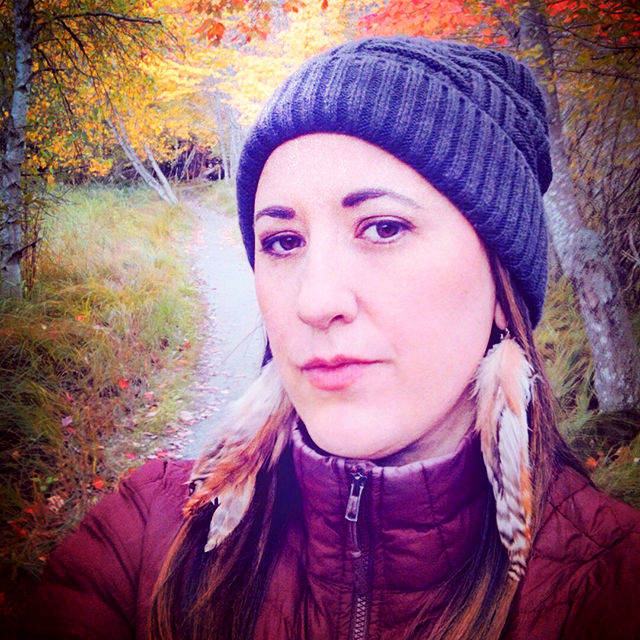Class of 2001
- Bachelor of Arts, in English, with a creative writing emphasis, Penn State Altoona
- Master of Fine Arts in Poetry
How has majoring in English helped you on your career pathway(s)?
I thought I would come to college and become a writer. What I quickly learned is that anyone, in any profession, may be a writer, though I certainly learned to hone skills and craft in all of my undergraduate creative writing classes. About one year into my undergraduate years, I decided I would like to teach college writing classes and so pursued that path forward. English, in particular writing, hones your communication skills, which has helped me participate and conduct writing workshops as well as communicate better with my students.
What knowledge and skills help you succeed in your job on a daily basis (and, possibly, in unanticipated ways)?
English is not quantifiable in the same sense as, say, math or science. I did take several literature courses, which contained quizzes and test components, but the majority of my classes were in writing. Thus, I learned how to craft effective written communication tools early on in my undergraduate years. Writing and crafting essays require good critical thinking skills which I can now communicate and teach to my own writing students.
In what (unanticipated) ways has the English major impacted your life beyond your profession?
I continue to write and even have several pieces published. I'm still working on a chapbook manuscript as well as a Haibun project, which I hope to see published down the road. I have also been asked to read professionally several times by Juniata College, Arts Altoona, and Tempest Productions. I served on the Red Weather Reading Series committee, which brings guest writers to campus, as well as have participated in High School Writing Day, which seeks to recruit Pennsylvania students into our English program. I have been able to network with a lot of local nature writers as well; in turn, those connections have led to friendships with local conservation and preservation groups. Nature is my main inspiration for writing, so forging these relationships has helped me feel connected to other artists and people who deeply care about local ecosystems and their flora and fauna.
What is your favorite experience from your time in the English program?
My favorite experience had to be my involvement with Hard Freight, the campus literary magazine. In fact, it was my graduating class that first thought of creating Hard Freight: it was our brainchild. I'm told the magazine is still alive and kicking today. My writing workshops, especially my upper-level classes, forged friendships and relationships that have helped me digest constructive criticism and revise: two staples of any successful writer's toolbox.
What advice do you have for current English majors or students considering entry into the field in which you’re currently working?
I work in higher education, which can be a tough road to navigate. Many students may have idealistic views of working in higher education as faculty. The reality is that many university teachers, while holding full-time positions, are not tenured. Tenure is not something that is easy to secure at any university. Students should prepare themselves for this reality. One can make a career out of teaching at the college level, however, if you secure a full-time teaching position. I have taught at Penn State University since the 2004/2005 academic year. Students wishing to pursue employment as college faculty should plan on pursuing a terminal degree (i.e., a doctorate [PhD] or a Master of Fine Arts [MFA]). Many colleges will hire faculty who hold Masters degrees as lecturer faculty; however, if you wish to move up the non-tenured ranks or wish to find a tenure-track position, you will need that terminal degree. For most English degree holders, that degree would continue to a PhD. However, the terminal degree for creative writing degrees is the MFA. Students interested in this career path should also note that you will most likely teach a variety of general education English courses, and it may take a while before you have the opportunity to teach within your area of expertise. It can be rewarding to pass the torch on, so to speak, as an English/writing teacher. It is also a very conducive career choice for those wishing to travel (unless you opt to work through summer, you will have about 8-10 weeks "off"). Many universities also have study abroad programs that you can lead as well.
Is there anything else you would like current Penn State Altoona students (of all majors) to know?
There is a lot of misinformation out there about how Liberal Arts degrees like English will get you nowhere. That is not true. English majors have, arguably, some of the best communication skills out there. All employers view great communication as a high priority on their short list for potential employees. Not everyone goes into teaching as I did. Many of my graduating class, with whom I still keep in touch, hold many positions, including in higher education as administrative assistants/staff, in editing, public relations as well as directors of community art programs, journalists, librarians, etc. And some English majors have also gone on to law school with success. English is actually a very versatile degree.
February 2023
